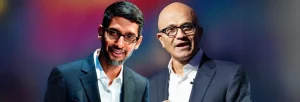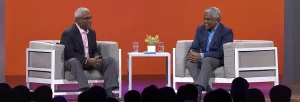(July 20, 2025) He walked four kilometers each day to a neighboring village for school, his textbooks tucked under his arm, his classroom often just a patch of ground beneath a tree. His village, Panoh, situated in the hills of Himachal Pradesh, had no electricity or running water until he was in his teens. The youngest son of small-scale farmers, Jay Chaudhry read by daylight and dreamed beyond his zip code.
Forty years later, he is the CEO of Zscaler, a cloud security giant safeguarding nearly half of the Fortune 500 companies. He commands a company worth billions, but more remarkably, he built it from scratch, without a single venture dollar in the early years, funding it with personal savings and a conviction that cybersecurity would someday be as essential as electricity.That conviction has rewritten global wealth rankings, while reshaping the industry.
In a major shift on Forbes’ 2025 Billionaires List, India has overtaken Israel as the top country of origin for foreign-born billionaires in the United States. Leading this surge is none other than Jay Chaudhry, who now holds the title of the richest Indian immigrant in America. He joins an elite class of Indian-origin leaders like Sundar Pichai and Satya Nadella, among others who are redefining Silicon Valley’s power structure, but unlike them, Chaudhry is a self-made founder who still owns 40 percent of his publicly listed company.
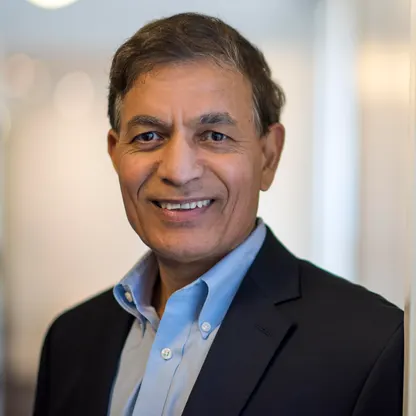
And yet, despite the numbers, Chaudhry’s story resists the usual billionaire tropes. There is no private jet. No entourage. No viral tweetstorms. He flies commercials. He conducts interviews on weekends. He answers customer calls himself. He treats his $16.3 billion net worth less as a symbol of success and more as a byproduct of doing work that matters.
“This isn’t work,” he says in a recent interview. “This is passion. This is the purpose.” Jay Chaudhry’s philosophy reminds us that greatness isn’t about how loudly you arrive. It’s about how quietly you endure, how deeply you care, and how many others you bring along with you.
A village boy with a billion-dollar vision
Jay Chaudhry’s rise may sound improbable, but it was built on consistency. After earning an electronics engineering degree from IIT-BHU, he arrived in the U.S. in 1980. It was his first time on an airplane, and he went on to secure three master’s degrees from the University of Cincinnati. He entered corporate America through IBM, Unisys, and NCR, where he worked in engineering and sales. But the itch to create grew stronger.
In 1996, with support from his wife Jyoti, Chaudhry poured their life savings into launching SecureIT, a cybersecurity company eventually acquired by VeriSign. That would be the first of several ventures like CipherTrust, AirDefense, CoreHarbor, each solving a niche in security, each acquired. But with Zscaler, founded in 2007, the stakes were higher, and so was the ambition.
This was not just a startup; it was a mission. Chaudhry envisioned Zscaler as a fundamental shift in cybersecurity: scalable, cloud-native, and built on zero trust principles years before the phrase became industry shorthand.
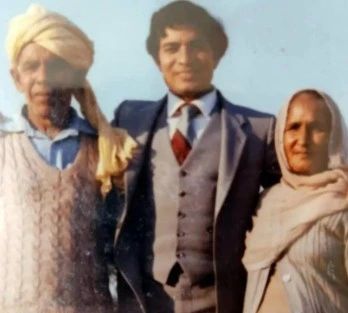
Jay Chaudhry with his parents in his younger days
Building without a blueprint
What makes Zscaler exceptional isn’t just its product. It’s how it was built. Chaudhry self-funded nearly $50 million in the company before ever taking external capital, which is a rarity in Silicon Valley. He raised small strategic rounds later, but even pre-IPO, outside investors held only about 17 percent equity.
He didn’t take shortcuts, even when they were available. And he didn’t chase an exit. Instead, he focused on product innovation, customer trust, and long-term value. These values still guide his leadership today.
For Chaudhry, the decision to keep building beyond acquisition wasn’t strategic. It was instinctual. Entrepreneurship, he often reflects, becomes easier when it feels like a hobby rather than a job. Retirement doesn’t appeal to him because, as he puts it, “What would I do that’s more fulfilling than this?”
Building trust in cybersecurity
Zscaler now processes hundreds of billions of data transactions daily, protecting everything from government secrets to enterprise workflows. It’s a backbone technology for companies that can’t afford digital compromise.
Chaudhry spends less time managing mature products and more time engaging with customers and envisioning next-generation services. His calendar prioritizes innovation and customer listening sessions over operations. He is not just CEO in title, rather still deeply involved in the architecture of what Zscaler becomes next.
This clarity of focus may be why, even after multiple exits, he chose to go bigger with Zscaler. He often points out that if a company collapses after its founder leaves, it was never truly built to last. The entrepreneur is adamant that Zscaler can’t be handed over to a generic operator. It needs someone who understands both technology and the trust it’s built on.
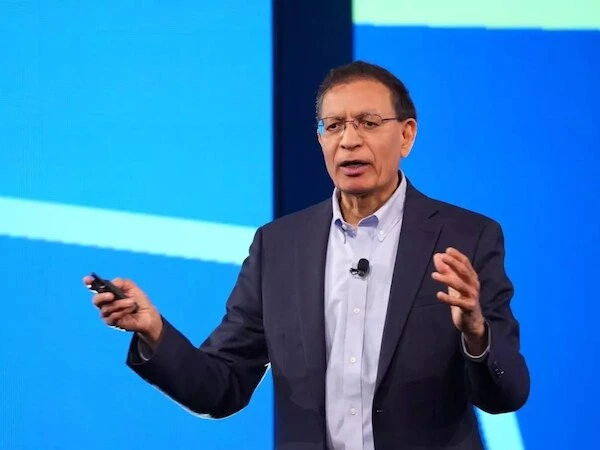
The ROI of modesty
Despite his net worth, Jay Chaudhry maintains a minimalist travel routine. He flies commercials, not out of austerity, but out of practicality. Only on multi-city international tours does he occasionally fly business class.
He doesn’t see the point in paying for luxury when time is what matters. For him, efficiency drives every decision, whether it’s taking a red-eye to maximize a day or planning four customer meetings across two cities in 24 hours. “I don’t see a huge difference in where you sit on the plane,” he said, “but I do see a difference in how you use your time.”
Culture built on drive
Chaudhry’s leadership philosophy is simple: reward those who go the extra mile, before they have to ask. He is deeply involved in hiring, often meeting candidates himself even without open roles. Some weekends, he interviews up to five people, not just to fill positions, but to scout potential.
He doesn’t believe in charisma as a shortcut. What matters to him is passion and follow-through. He is especially wary of executives who “talk a big game” but avoid the trenches. Surface-level understanding, no matter how polished, doesn’t impress him. In interviews, he pays close attention to the questions candidates ask. The entrepreneur has found that these often reveal more about curiosity and depth than any résumé ever could.
Work-life integration, not balance
Though immersed in work, Jay Chaudhry and his wife have always carved out time for family. He admits she has attended more soccer games of his kids than he has, but says he has never missed a graduation or milestone moment.
Their parenting approach was intentional. Weekends included outings, reading sessions, even trips to amusement parks where, he recalls fondly, he was never the parent on the sidelines. “I was on the roller coaster with them,” he laughs.
As the company has grown, his workweek has expanded too. But he doesn’t expect his team to mirror his pace. For those who are passionate, larger roles follow. For those who aren’t, he adapts their responsibilities to fit where they can be most effective.
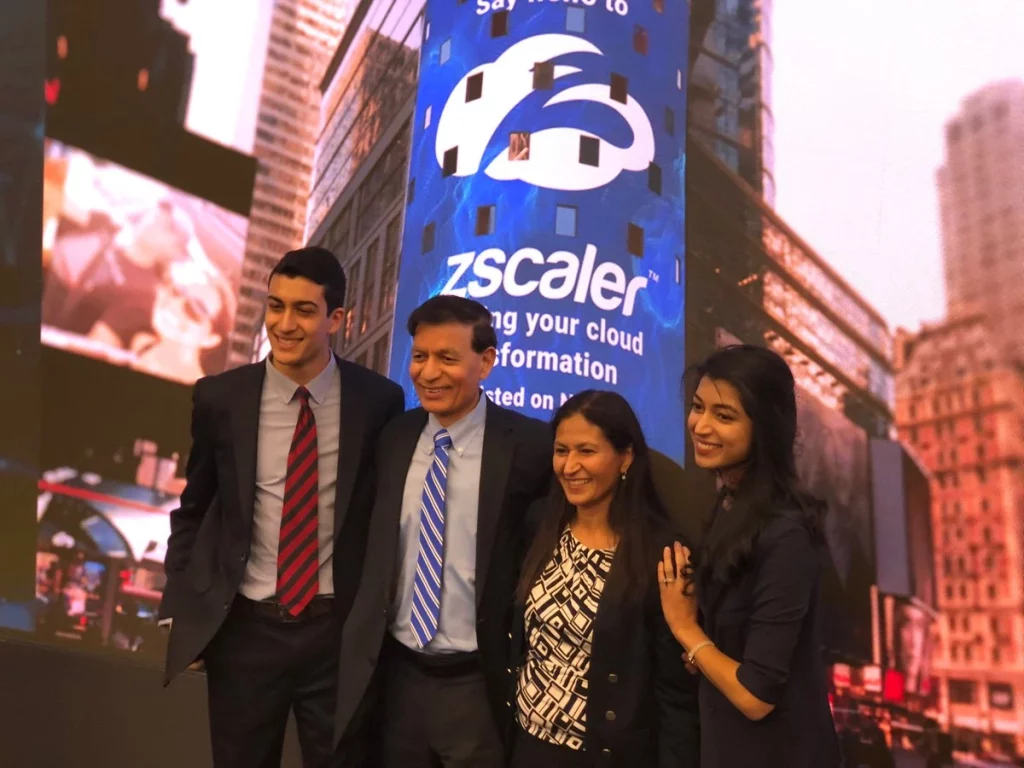
Jay Chaudhry with family
India first, then global
One of Zscaler’s earliest bets was on India’s talent. Before opening its U.S. headquarters in Santa Clara, Chaudhry established the Bangalore office, with half the initial team based there.
Though he had never worked in India before, he flew to the country every other month in Zscaler’s first year, recruiting, mentoring, and shaping culture. Today, the India team remains central to product development. The Indian-origin entrepreneur credits the country’s deep engineering talent and work ethic as essential ingredients in Zscaler’s growth.
A founder thinking beyond profit
Though deeply immersed in business, Chaudhry is already envisioning his next chapter: a nonprofit venture focused on education and healthcare. Inspired by the philanthropic arc of leaders like Bill Gates, he wants to channel his energy into long-term global impact.
He has already donated millions to his alma mater IIT-BHU, to pandemic relief via the American India Foundation, and to the Sankara Eye Foundation. He also returns regularly to his native village, Panoh to fund medical initiatives and community development. Giving back, he says, is not an afterthought. It’s the natural extension of building something that lasts.
AI and the next chapter
Jay Chaudhry is leaning into artificial intelligence as Zscaler’s next frontier, not just externally, but internally. A dedicated team now reports directly to him, building a proprietary security AI engine trained on the company’s own data.
He sees general-purpose AI models as limited, especially in specialized sectors like cybersecurity. Instead, he’s betting on domain-specific optimization tools that understand Zscaler’s data in ways no third-party platform can. These AI systems are not products yet, rather they are foundations. The engine comes first. The applications will follow.
Trust as the ultimate product
In Silicon Valley’s culture of spectacle, Jay Chaudhry’s path is refreshingly understated. He doesn’t chase headlines. He doesn’t pontificate about disruption. He builds, quietly and consistently. “We’re not just building tech,” he says. “We’re building trust.”
And that, perhaps more than valuations or rankings, is the legacy he is after. The entrepreneur has built a company that endures, a team that outlives him, and a philosophy that reminds the next generation that when your business is grounded in purpose, success becomes more than wealth it becomes wisdom.
In Jay Chaudhry’s words:
- “Company building is hard. But if it’s your passion, it’s a joy.”
- “Some people do research for decades without recognition. It’s not easy, but for them, it’s joyful. That’s what building feels like to me.”
- “If what you built collapses after you leave, then you didn’t really build something lasting.”
- “I’ll spend money where it makes me more efficient. Not where it makes me more comfortable.”
- “To lead, you need to go deep. If you haven’t been in the trenches, you won’t really appreciate what it takes.”
- “My time is the most important thing. That’s what I optimize for.”
The entrepreneur’s mindset reveals a builder who measures success not by scale, but by substance. In a year that marks a turning point for Indian-origin leaders in the U.S., topping the ranks of the nation’s richest immigrants, Jay Chaudhry’s success reflects more than personal triumph. It signals a diaspora-driven revolution, built not just on intellect, but on endurance, values, and vision.
- Follow Jay Chaudhry on LinkedIn
ALSO READ: The Architect of Innovation: How Vinod Khosla helped shape Silicon Valley’s future


